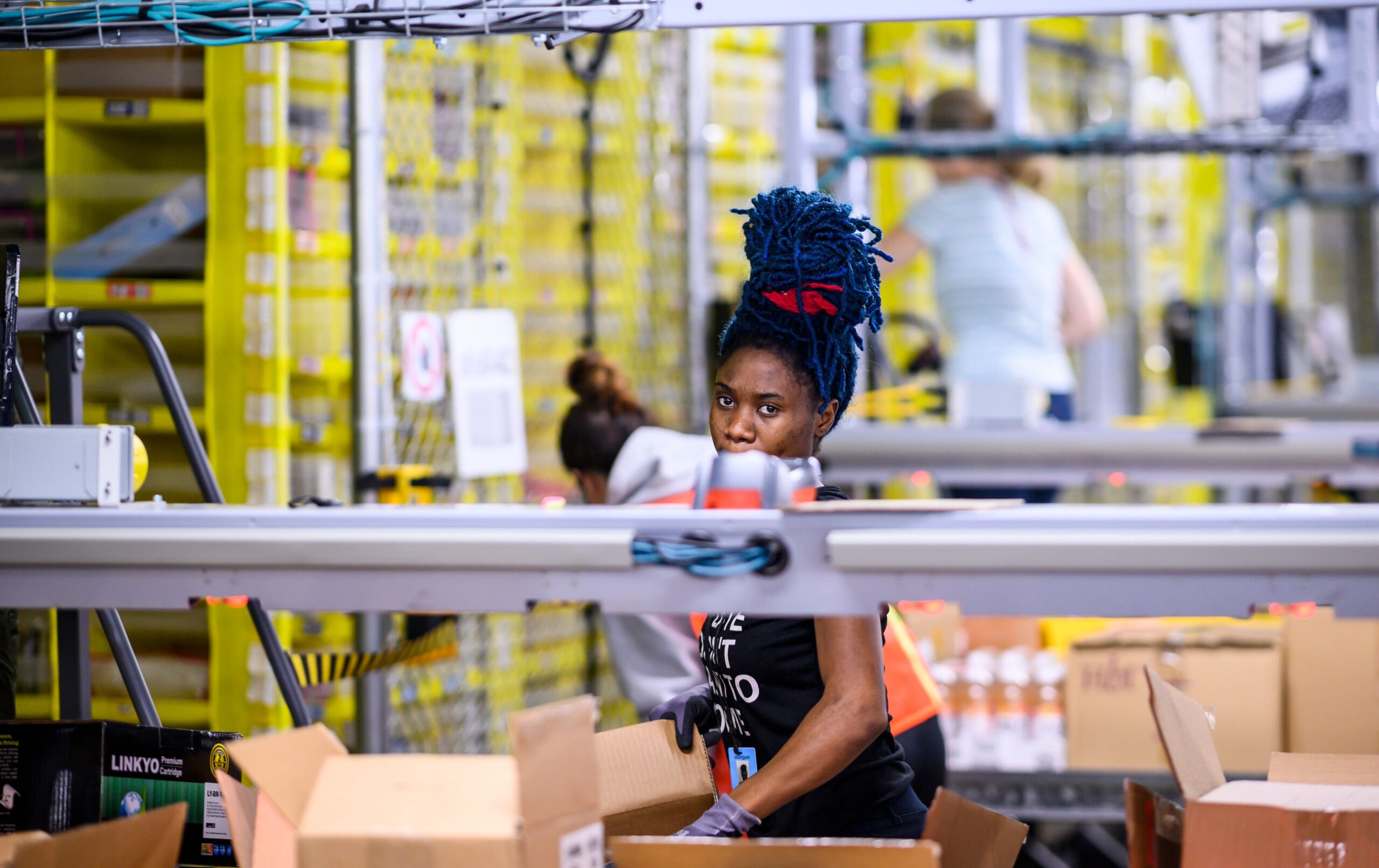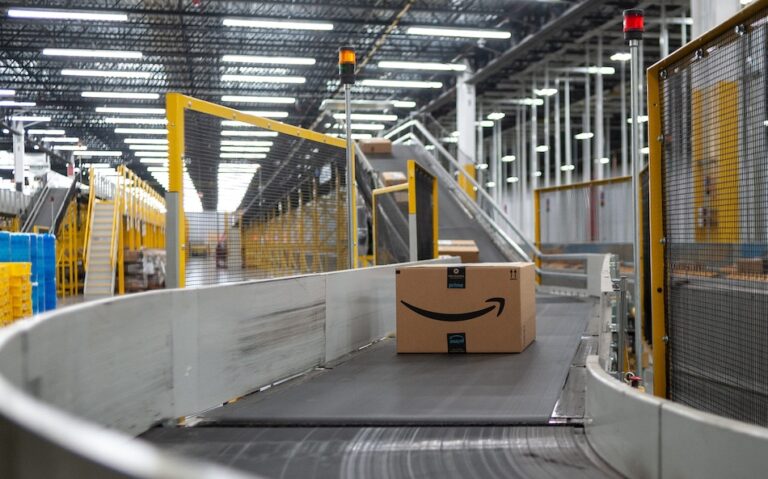Technology has long been at the center of labor disputes, from today’s demands by striking film and TV workers that “guardrails” be placed on the use of artificial intelligence to the machine-breaking protests of the nineteenth-century Luddites. The struggle over workplace technology is often framed around job-displacing automation, but the decisive question is often one of control—workers object less to technology as such than they do to its undemocratic imposition. This week’s reading list explores what a more democratic approach to workplace technology—and to the workplace more generally—might look like.
Few workplaces are more subject to technological micromanagement than Amazon warehouses. As Brishen Rogers shows, these facilities represent a new regime of “digital Taylorism” in which automation and surveillance “intertwine” to intensify the pace of work. Besides using cutting-edge technology to squeeze as much work from their employees as possible, companies rely on sophisticated “data aggregation techniques” to monitor workers for signs of union activity. While he paints a dystopian picture, Rogers argues that it is possible to “democratize the governance of workplace data and technology” through reforms that make it easier to unionize, start worker cooperatives, and exert public control over the massive troves of data that employers collect. “Technology is a product of our social knowledge and past labor, and it holds out the promise of basic material security and freedom from drudgery for all,” he writes. But we can only harness technology’s liberatory potential if we give workers and the public a say over how it is used.
While the threat of technological unemployment has dominated recent discussion of AI, this frame may miss other, equally disconcerting possibilities. According to Kate Crawford, responding to the threat of automation with calls for AI to complement rather than displace human labor fails to appreciate the power dynamics underlying the current development of workplace technologies. Writing in response to Daron Acemoglu’s lead essay in our forum on AI’s future, Crawford warns that “while the elimination of entire job categories is one risk of automation, another is the creation of workplaces with increasingly extreme asymmetries of power between workers and employers.” “The uncomfortable truth,” she argues “is that to change the current trajectory of AI development will require changing the structures of power in big tech, from corporate priorities to government regulation, from who owns AI infrastructures to how AI systems are conceptualized, built, and deployed.”
Elsewhere in this week’s list, contributors detail sinister uses of workplace tech, explore the mechanisms of workplace and union democracy, and grapple with the current state of the U.S. labor movement. In two further essays, Rogers examines worker activism in the tech sector and why workplace democracy is superior to shareholder primacy; Karen Levy explains why new forms of surveillance in the trucking industry represent a threat to worker autonomy; Andrea Dehlendorf and Ryan Gerety call for the establishment of worker technology rights; and more.
Both regulators and employers have embraced new technologies for on-the-job monitoring, turning a blind eye to unjust working conditions.
Forum
Unions are being strangled by laws that block workers from organizing, striking, and acting in solidarity. Becoming a rights-based movement is the only way to save labor.
Workers will benefit from technology when they control how it’s used.
In Rules to Win By, Jane McAlevey and Abby Lawlor reject backroom dealmaking. Rank-and-file workers are going even further.
Forum
How new approaches to worker organizing are finding success.
The problems go beyond the abstractions of democracy and liberty. New workplace technologies cater to punitive practices.
Workers deserve substantive policy reforms that point the way to a better future, especially in this year of unprecedented crisis.
Individuals can’t engage in democracy if they are struggling to survive.















